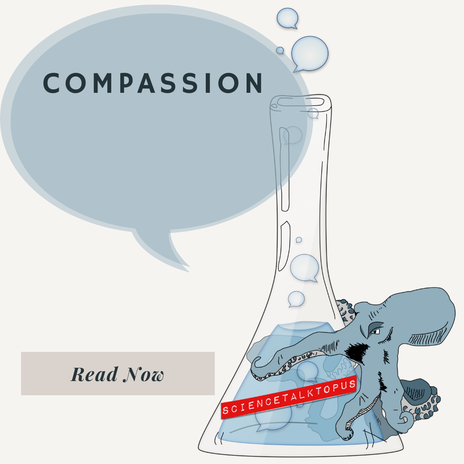This post is part of series on “The Many Arms of SciComm” which will introduce concepts and ideas leading up to Science Talk ’22. Registration is open until March 16th.

It’s 7 am and I’ve pulled my second all-nighter this week because I can’t sleep. Over the past two years, the COVID pandemic has slowly became my dystopian, anti-science nightmare. As a science communicator, I often lay awake and think about how much I wish that we weren’t nearing the grim milestone of one million COVID deaths.
Pandemic science communication has been a challenge. Scientists and science journalists did not seem equipped to, at a large scale, share complex science in an accessible way to everyday people. Most had never been trained to do so in the course of their scientific careers. The few who have communicated science publicly often experienced backlash.
Yet the true conflict wasn’t ever about science – it was about free will. Lawmakers, pressured by their constituents, scored brownie points quarreling over masks, vaccines, vaccine mandates, and lockdowns. Constituents burned masks in the streets. They clamored for medical freedom, viewing lifesaving vaccines as a form of tyranny.
We could have met the vaccine hesitant, the cautious skeptics, with compassion, engaging with their concerns, rather than blaming them for the pandemic.
Compassion would have helped my deeply red home state avoid the high mortality rate we experienced in the pandemic. Health messaging surrounding COVID-19 prevention seemed to fail here. Not surprising, since the messages mostly came from blue states. Red staters were often neglected by the media – when the Delta variant ravaged the state for three months in the late summer and early fall of 2021, there was nary a mention of it in the news. My fellow science journalists were cautiously going to farmer’s markets again while I was stuck at home sleeplessly wondering if COVID would ever end. In the Omicron wave, my state finally made the national news for nearing the collapse of its healthcare system.
What have I learned from my experiences as a pandemic SciCommer? That our work serves everyone – yes, even those who may not have the same political views as us. When it doesn’t, we have failed. If we preach to the choir, so to speak, we will never exit our own pro-science echo chamber. And what’s the point of that?
In communications, you must always know your audience and meet them where they are. Just spouting a long list of science facts will probably not work for most people. Nor will shaming or fear-mongering. Take the time to learn about your audience and understand their interests and motivations. Then, build on shared values.
I liken the pandemic science communication effort to the political “ground game.” You wouldn’t use Democratic messaging to win a Republican senate race, so why would we do that for a pandemic? Science communication, like politics, is grassroots.
Communicating science can be understandably frustrating at times, but that doesn’t mean you should only communicate science when it’s easy. Can you communicate science to someone whose political views and beliefs differ from your own?
That is the tough question with which we must grapple if we are to perform science communication from a place of compassion and service.



[…] – communicated skillfully – must have a place at the table. What’s more, we must work to be compassionate and inclusive, and that includes people from all political walks of life. After all, science isn’t Democrat or […]